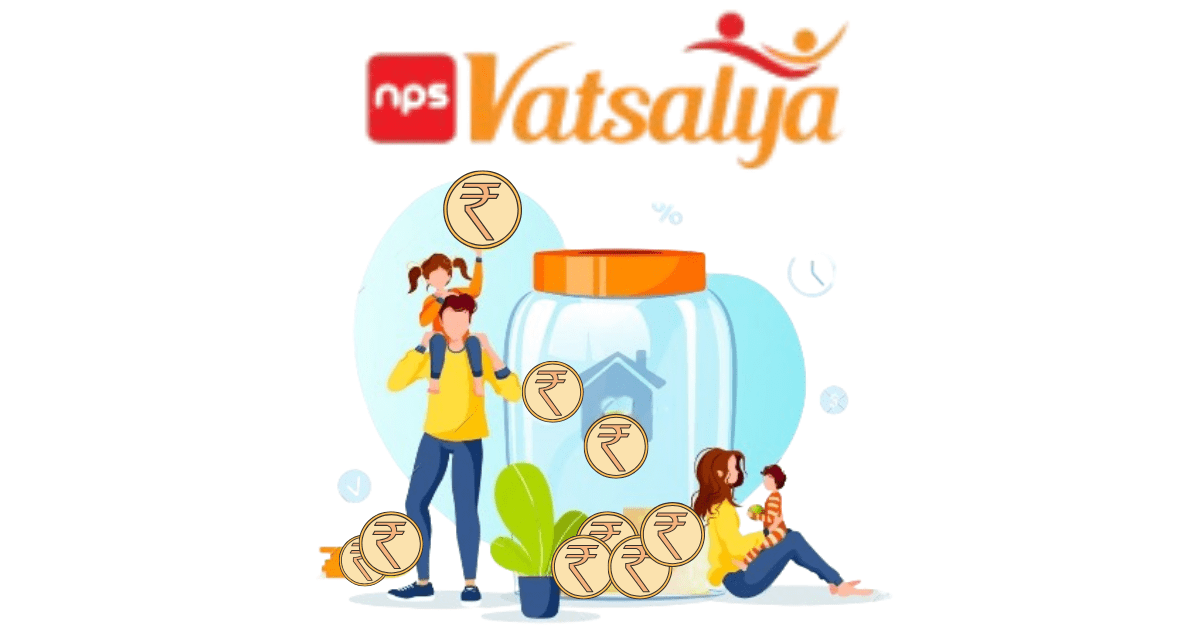The National Pension System (NPS) is a government-supported initiative designed to help individuals save for retirement. Originally tailored for working professionals, the introduction of NPS Vatsalya has opened new avenues, enabling parents to secure their child’s financial future. This article explores the features, benefits, and considerations for investing in the NPS Vatsalya scheme for minors.
What is NPS Vatsalya?
NPS Vatsalya is an extension of the National Pension System (NPS), allowing parents or legal guardians to open a pension account for children under 18. Its primary goal is to help minors build financial security by fostering early retirement savings. The account matures when the child reaches 60 years of age, providing them with a significant corpus for their retirement.
Under this scheme:
- The parent or guardian serves as the account subscriber for the child.
- The child becomes the beneficiary, and the guardian manages the account until the child turns 18.
- After reaching 18, the child can independently manage the account.
How Does NPS Vatsalya Work?
The NPS Vatsalya scheme works similarly to the regular NPS. Parents or guardians can open an account for minors via registered Points of Presence (PoPs) authorized by the Pension Fund Regulatory and Development Authority (PFRDA). These PoPs include banks, financial institutions, and other approved entities.
Here’s a step-by-step explanation:
- Eligibility: The account can be opened for minors under 18 by a parent or legal guardian.
- Contributions: A minimum of ₹1,000 annually is required, with no maximum contribution limit.
- Asset Allocation: Investments can be allocated across equity (E), corporate bonds (C), and government securities (G) based on the guardian’s preferences and risk tolerance.
- Withdrawals: The account matures at 60 years of age. Partial withdrawals are allowed after the child turns 18 for specific purposes like education or marriage.
- Tax Benefits: Contributions are eligible for tax deductions under Section 80C and Section 80CCD of the Income Tax Act.
Why Consider NPS Vatsalya?
1. Early Start with Compounding Growth
Investing early allows your money to grow over time with the power of compound interest. For instance, investing ₹10,000 annually from a child’s age of 5 can create a substantial retirement corpus by the time they turn 60.
2. Affordable Contributions
With a minimum annual contribution of just ₹1,000, the scheme is accessible to parents across income groups. Regular small contributions can accumulate into a significant amount over time.
3. Tax Savings
Parents can claim tax deductions of up to ₹1.5 lakh under Section 80C and an additional ₹50,000 under Section 80CCD(1B) for NPS contributions. This helps reduce taxable income while investing for the child’s future.
4. Long-Term Financial Security
The scheme ensures financial stability for the child by the time they reach retirement age, reducing future financial dependency.
5. Government-Backed Trust
Being a government-supported initiative under PFRDA, the scheme offers credibility, safety, and reliable growth opportunities.
Risks to Consider
While NPS Vatsalya has numerous benefits, it’s important to consider potential risks:
- Market Volatility: Investments in equity are subject to market risks. However, a balanced portfolio of equity and bonds can reduce this risk.
- Limited Access to Funds: Funds remain locked until the child turns 60, except for partial withdrawals after 18.
- Dependency on the Minor: After the child turns 18, they manage the account independently, which could pose challenges if they lack financial literacy.
- Consult a Financial Advisor: If you’re unsure about which investment option is best for your child’s future, consulting with a financial advisor can provide you with personalized advice that takes into account your financial goals and risk tolerance.
How to Invest in NPS Vatsalya?
Getting started with NPS Vatsalya is an easy and straightforward process:
- Select a Point of Presence (PoP): Choose a registered PoP with PFRDA, such as banks or financial institutions offering NPS services.
- Fill the Form: The guardian must complete the application form, which can be done online or offline.
- Submit Documents: Submit KYC documents, including proof of identity, address, and the minor’s birth certificate.
- Make the First Contribution: Deposit the minimum amount of ₹1,000 to activate the account.
- Monitor and Manage: Regularly track the account’s performance and adjust asset allocation as needed.
The NPS Vatsalya scheme is a promising tool for parents seeking to ensure their child’s financial independence and retirement security. Its affordability, long-term benefits, tax savings, and government backing make it a strong investment option for minors.
While market risks and limited fund access exist, the advantages of early savings, compounding growth, and financial discipline outweigh the concerns for most parents. Starting small and investing regularly can significantly impact a child’s financial future, making NPS Vatsalya a worthwhile consideration.

